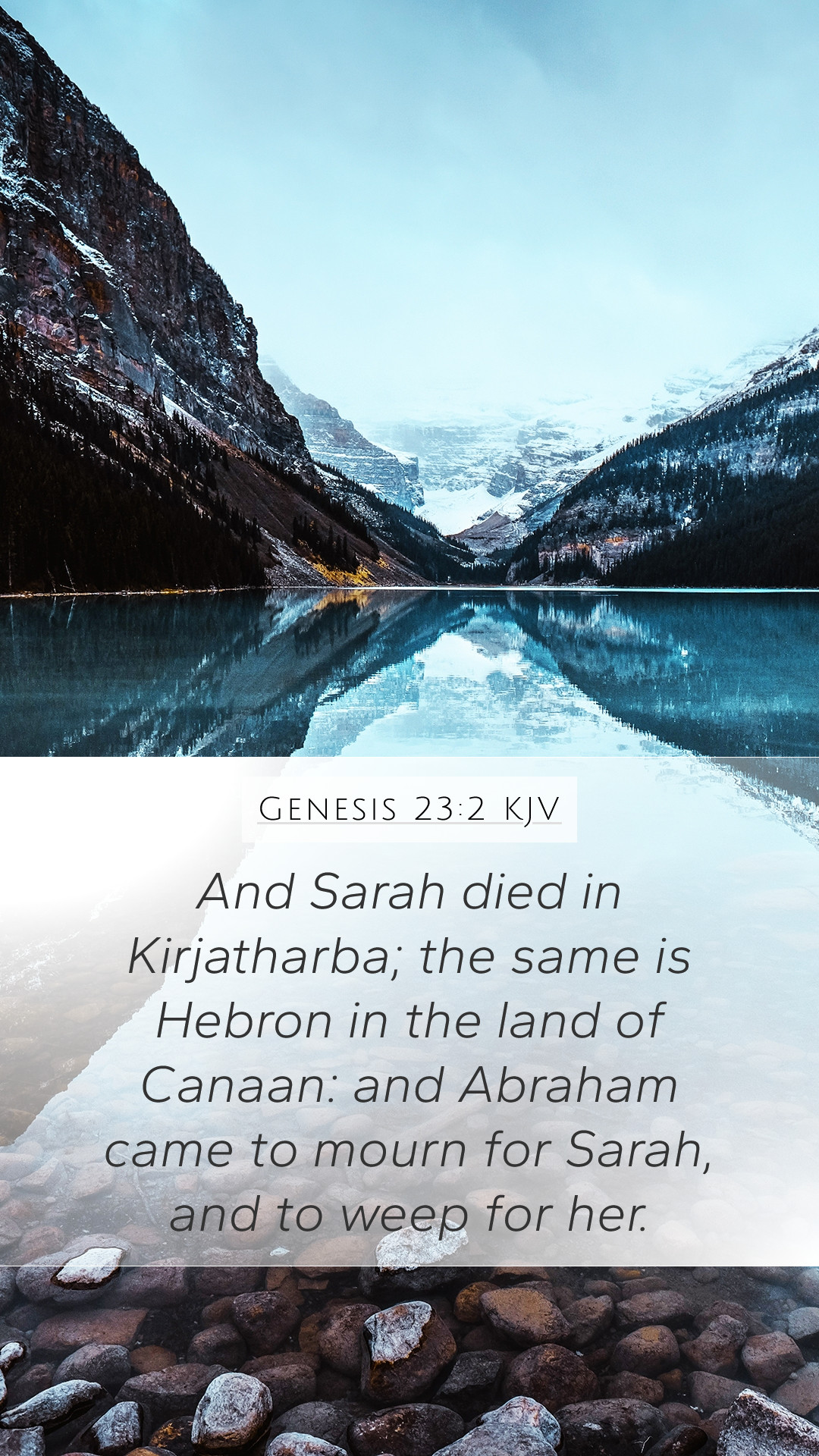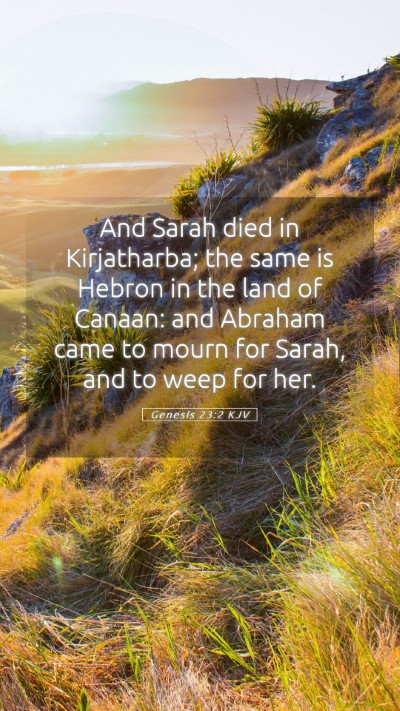Bible Verse Commentary: Genesis 23:2
The verse Genesis 23:2 states: "And Sarah died in Kirjath-arba; the same is Hebron in the land of Canaan: and Abraham came to mourn for Sarah, and to weep for her." This verse holds profound significance in the narrative of Abraham and serves as an essential point of reflection for those engaging in Bible study insights. Below, we will explore the meaning of this verse through interpretations from notable public domain commentaries.
Meaning and Context
This passage signifies the death of Sarah, Abraham's beloved wife, and marks a crucial moment in Abraham's life. The historical context reveals that Sarah died at the age of 127 (Genesis 23:1), a full life that was intimately entwined with Abraham's journey of faith.
The mention of "Kirjath-arba" being Hebron in Canaan signifies a geographical and spiritual location significant to both the patriarchal history and the future inheritance of the children of Israel. Understanding Scripture here highlights Abraham's connection to the land promised to him by God, demonstrating the book's overarching themes of promise and fulfillment.
Commentary Insights
-
Matthew Henry Commentary:
Henry emphasizes the emotional weight of Abraham's mourning for Sarah. He observes how mourning is a natural response to the loss of loved ones, reflecting on the deep bond shared between Abraham and Sarah. The aging and dying of Sarah reminds readers of the transient nature of life and encourages reflection on our own mortality and relationships.
-
Albert Barnes Commentary:
Barnes focuses on the significance of Sarah’s death at Hebron, which is often recognized as a pivotal location in Jewish history. He discusses how Abraham's grief shows the strength of familial bonds and the importance of love within marriage. The logistics surrounding the burial also foreshadow the future acquisition of land for the descendants of Abraham.
-
Adam Clarke Commentary:
Clarke provides insights on the meaning of the name "Hebron," which signifies "fellowship" or "association." He connects the grieving process to faith, indicating that even in sorrow, Abraham still holds onto the promises of God. Clarke elaborates on how this moment contributes to the narrative of God's covenantal relationship with Abraham and his heirs.
Biblical Exegesis and Thematic Relevance
In-depth Bible verse analysis of Genesis 23:2 reveals themes of love, loss, and promise that resonate throughout the Scriptures. This passage illustrates the depth of Abraham’s commitment not only to God but also to his family. His response to Sarah's death serves as a poignant reminder of God’s faithfulness, even amid grief.
Application of Genesis 23:2
Understanding this scripture offers valuable lessons on how we can navigate our own experiences of loss and mourning. It encourages believers to cherish relationships and reflect on the transient nature of earthly life, urging us to cultivate a deeper relationship with God in times of sorrow.
Cross References
- Genesis 3:19 - The reminder of human mortality.
- Genesis 12:7 - God's covenant with Abraham regarding the land.
- Genesis 25:9 - Abraham's burial of Sarah in the cave of Machpelah.
Conclusion
Genesis 23:2 serves as a compelling reminder of love, faith, and the importance of the promises made by God. Its reflection on the human experience of mourning invites readers to contemplate their relationships and the biblical assurances of God's presence in every season of life.
Further Bible Study Resources
For those seeking deeper understanding and insights into this verse, utilizing Bible study tools such as concordances, study guides, and commentaries can enrich your study. Participating in Bible study groups and exploring online Bible study platforms can facilitate meaningful discussions and reflections on passages like Genesis 23:2.


